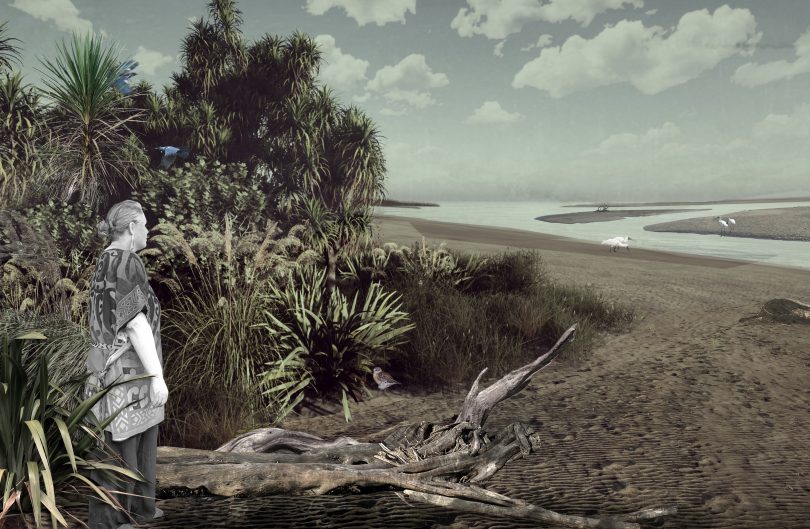There are well-established links between nature and human wellbeing, with increasing evidence for the value of nature for our mental health. Climate change and urbanisation, however, are bringing acute pressures on human and natural systems.
In Oceania, both terrestrial and marine ecosystems, and the services they provide, are crucial for subsistence livelihoods, wellbeing and cultural identity, as well as for adapting to the adverse effects of climate change.
How then can we address climate change, while increasing human wellbeing in Oceania? Perhaps nature-based design, where we strategically work with nature rather than against it, offers some solutions.
Acknowledging that Oceania is increasingly urban, our NUWAO (Nature-based Urban design for Wellbeing and Adaptation in Oceania) research program is looking to build an Oceania urban design agenda – one that is positioned within an urban ecosystems framework focused on human wellbeing and informed by localised, traditional, ecological knowledge. This program aims to codesign nature-based solutions (NbS) with urban communities in South Tarawa (Kiribati), Apia (Samoa) and Port Vila (Vanuatu), as well as Te Awakairangi/Lower Hutt and Te Wai Pounamu (South Island) in Aotearoa New Zealand.
Concepts are being explored through an international design competition, open to professionals, students and the general public including rangatahi/youth. Early phases of NUWAO have also supported dialogue between academics, researchers, policy-makers and traditional master builders in Samoa, about traditional architectural designs and nature-based urban designs.
Nature-based solutions are defined by the International Union for the Conservation of Nature as “actions to protect, sustainably manage, and restore natural and modified ecosystems that address societal challenges effectively and adaptively, simultaneously providing human well-being and biodiversity benefits.” Put more simply, NbS work with nature to enhance the resilience of ecosystems, their capacity for renewal, and the provision of ecosystem services.
Practically, NbS encompass a wide range of approaches to addressing climate change that involve using natural ecosystems rather than ‘hard’ engineered options. A few examples include coastal protection (e.g. mangroves), reforestation, sustainable agriculture (including urban agriculture) and aquaculture, and green infrastructure in urban areas – but there are many others. Proposed urban NbS projects, from earlier work in Port Vila through the Pacific Ecosystems-based Adaptation to Climate Change project, include riparian corridor regeneration, restoration and protection of coastal vegetation, intensification of suburban and peri-urban home gardens, urban tree planting, and a model sustainable housing project.
NbS are gathering traction. By 2020, for example, more than 120 countries had included NbS actions in their national plans under the Paris Agreement. Commitment to NbS was also a key outcome of the COP26 Climate Summit, although discussions did prove divisive, with critics, particularly indigenous peoples, warning that nature should not be commodified and human rights safeguards are needed in the implementation of NbS.
In Oceania, NbS, and related actions like ecosystem-based adaptation, are becoming more prominent, in both rural and urban areas. Recently we have profiled NbS evidence and opportunities from urban Kiribati, Samoa and Vanuatu. These three Pacific island case studies showcase rich cultural and biological diversity and, critically, the role of traditional ecological knowledge in shaping localised, place-based NbS. But significant gaps in knowledge, policy and practice remain.
Before NbS designs can be developed, key steps include: understanding local priorities; assessing climate and ecological projections; understanding traditional ecological knowledge (mātauranga Māori in the Aotearoa New Zealand context) and local ideas and models of wellbeing; investigating local ecological histories; and spatialising information where possible. This is the focus of ongoing research by our team of Aotearoa New Zealander, I-Kiribati, Samoan and ni-Vanuatu researchers and practitioners.
Progressing nature-based forms of urban design will be an important part of wider efforts to adapt to climate change and protect and promote human wellbeing and the ecologies of Oceania.


Leave a Comment